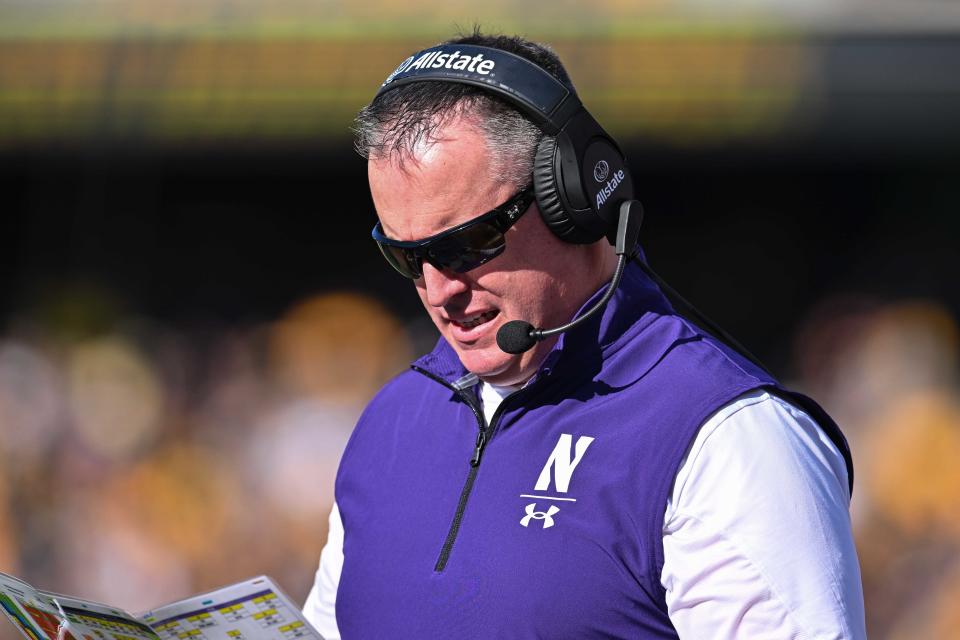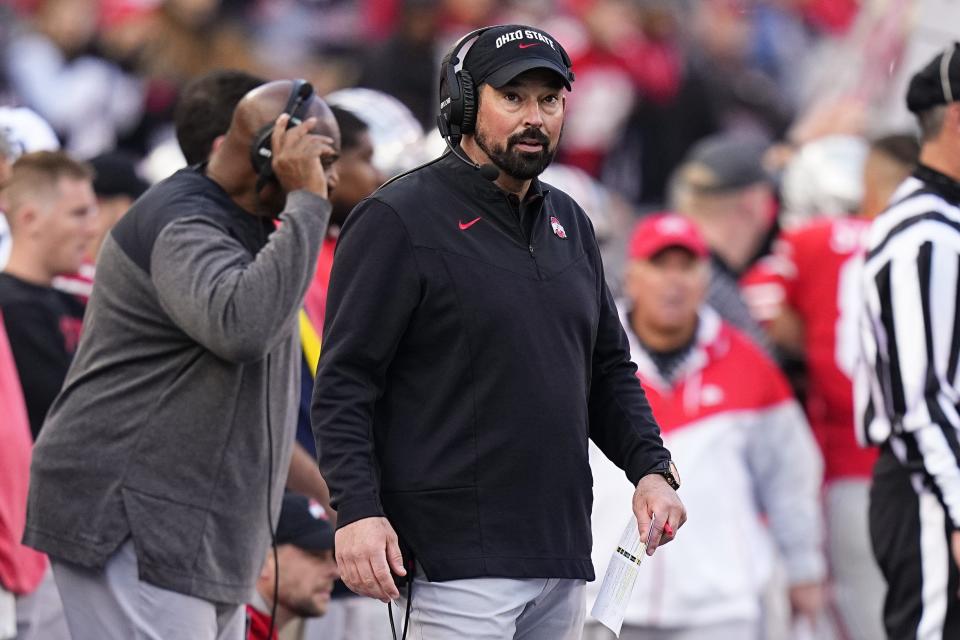After Northwestern hazing fallout, all college coaches should be scared | Opinion
If I am a coach, I worry what kind of potential job-killing, program-ruining player misbehavior is happening on my watch.
I know some of what is going on, or at least I should. I do not know the full extent or every detail of what players and staffers are doing every second in every team area, including locker rooms. But as chief creator and conductor of program culture, I realize the buck stops here.
If sexualized hazing is going on, I take the blame. If bullying is taking place, I take the heat. Deservedly so. See no evil, hear no evil may have passed muster a generation ago, but no more. I am expected to be teacher, CEO and babysitter. It says so in the NCAA bylaws. I am responsible for the actions, and inactions, of my staff.
I don’t have to like it. Sometimes I hate it. But the rules have changed. Today, I am paid millions not only to win but to keep the program from losing ... everything. To keep it from becoming Northwestern, where accusations of abuse, followed by former athletes lawyering up, are blowing into Evanston, Illinois, like nor'easters off Lake Michigan.
I read the news: hazing went too far, costing Wildcats coach Pat Fitzgerald his job. But how far is too far? A wise mentor once told me how to tell when a line has been crossed. “You know it when you see it,” he said. “So be looking for it.”
Was Fitz looking? Did he know the gory details? The alleged dry-humping. The naked quarterback-center exchanges. Freshmen forced to spin nude in front of the showers. Maybe. Maybe not.

What terrifies me as a coach concerned for my own welfare is not so much what Fitzgerald knew, but what others knew. And what are they planning to do with that information?
Is there a whistleblower out there about to shine light into darkness? Because there always are dark places. Every program has its rituals and traditions. Some are innocent enough, some a bit too eyebrow raising and some downright disgusting, even if they did not begin that way. How it often plays out: over decades, fairly innocuous laugh-it-off forms of initiation pass from one group of upperclassmen to another, turning more sadistic with each class. Eventually, things go way too far, and by then it is too late.
As a coach, am I too often ignoring or downplaying signs of program dysfunction? Am I liable? Does the former third-team tailback have an ax to grind? Yes. Yes. Yes.
Do some former athletes have their hand out hoping to cash in on a settlement? Are at least some athletes telling the truth? Were some legitimately traumatized? Yes. Yes. Yes.
Part of me wants to criticize the whistleblower. Accuse him or her of being soft. A snitch. Point out that 90% of my former players are in my corner. But I must be honest with myself. I look at what happened at Ohio State with Richard Strauss, the former team doctor accused of sexually assaulting athletes. I look at Penn State and Jerry Sandusky. If not for a whistleblower calling out what happened, some wounds would never heal. I don’t always like to admit it, but the world needs whistleblowers.
Yet they scare me and my coaching buddies, not to mention athletic directors and college presidents, who worry what is happening at Northwestern could happen at their schools. Will happen. All it takes is one current or former athlete to speak up. Then, if bad things really took place, others will come forward, finally freed from fear of singular retribution aimed their way.
From Dan Wolken: Northwestern hazing was a horror show. If it's happening elsewhere, players must speak up.

The truth? I know things happened in my program. Maybe not awful things, but bad enough to embarrass the university. Bad enough to leave an emotional scar, to negatively impact mental health.
How to protect the program? And myself? It feels overwhelming. Coaching has become a 24/7 occupation. We have to sleep sometime. Does it always have to be with one eye open?
This much I know: character matters more than culture, because character creates culture. Also, integrity does not grow on trees. It begins with the roots. I need to preach to my players that before laughing at your teammates you must love them. It doesn’t mean we can’t have fun, but we create chemistry by building up, not tearing down. We construct trust atop a foundation of respect.
Big Ten media days: Northwestern football players to skip amid hazing scandal
If I am a coach, I've used that motivational stuff before. It is all well and good, but the job still feels overwhelming. I worry. I wonder, shrugging, "Aren't some things out of my control? What can I do?"
It is the wrong question. Better to ask what should I do? Then do it.
This article originally appeared on The Columbus Dispatch: After Pat Fitzgerald firing, all college coaches should be scared

